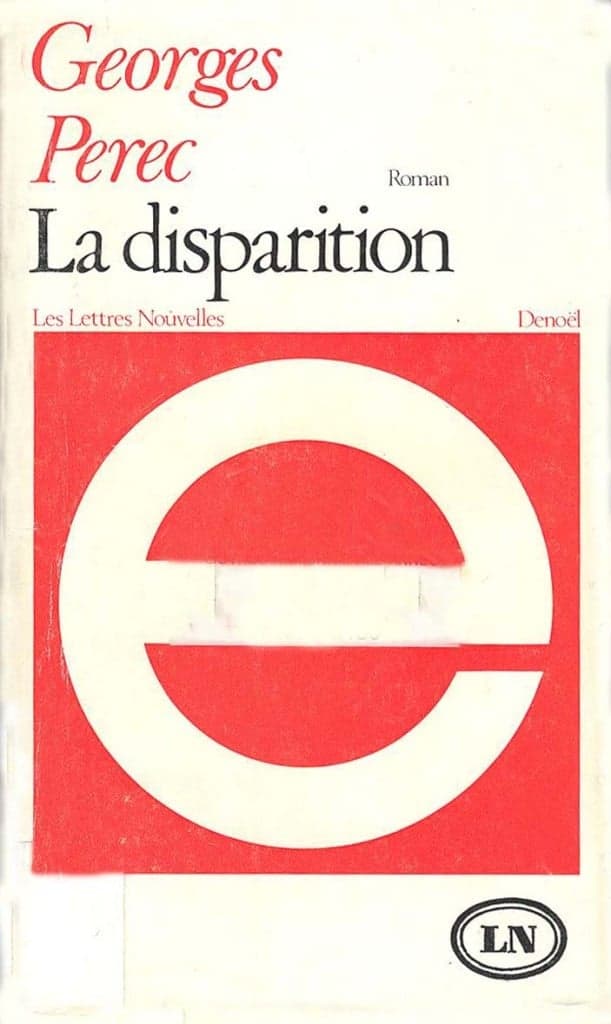The letter “e” is the most used in English, if is difficult to write even a single sentence without it, imagine how challenging it could be to write a 50,000 word novel. That is the case of Gadsby, written in 1939 by Ernest Vicent Wright. In the opening paragraph of the book he wrote that the most difficult part of the process was avoiding common English words like “the”, “he”, plurals ending in “es” and the past tense verbs ending in “ed”. For instance, instead of writing “he walked”, he wrote “he did walk”. It was also said that he had removed the letter “e” from his typewriter to be sure of not using it. Yet the story flows very easily, and the piece was acclaimed by critics for its literary excellence.

Georges Perec, directly influenced by Gadsby, used this lipogrammatic technique for his novel La Disparition (1969), avoiding the same letter “e”, which is also the most used letter in French. For its translation into English –A Void by Gilbert Adair- also the letter “e” was omitted. It was translated to other languages like Spanish omitting the “a” (the second most used letter in this language), Romanian, Dutch, Swedish, Turkish and Japanase. In this special and playful literature, the merit of writing omitting a certain letter is not only for authors but also for translators who manage to stick to the rules.
This kind of literature piece is called “lipogram” (from the Greek “lipagrammatos” that means “missing letter”), a written composition from which the writer systematically omits a certain letter or letters of the alphabet. Trivial work if we talk about avoiding letters such as Z, X or J but a real challenge if we talk about vocalic lipograms. However the history of literature is full of examples starting in the Greek times, for instance, Triphiodorus (3rd century) wrote a lipogrammatic Odyssey, also the renowned Spanish author Lope de Vega (1562-1635) wrote five lipogram novels. And without going any further, the author mentioned before, Perec, after writing this novel without the letter “e” he wrote a novel with no vowels but, precisely, the “e”, entitled Les revenentes. He was part of Oulipo, a group of French authors who used many compositional limitations for their works. Nevertheless, this use of literature as word-game, as practice, has often been dismissed by academia.
By Isabel Beldad. Journalist, web editor and social media expert.
Communication Trainee at TermCoord

